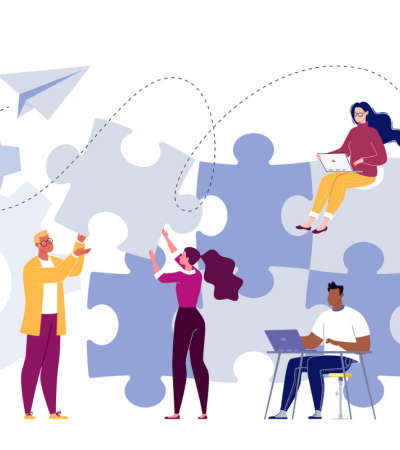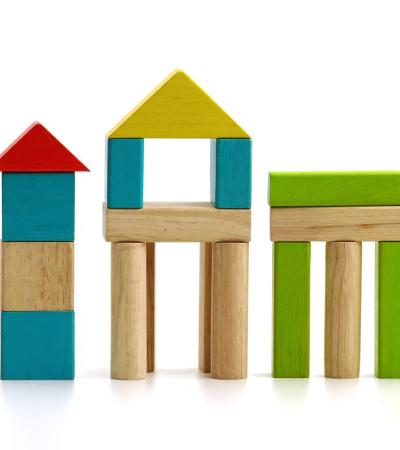Albert Einstein once said, “We cannot solve our problems with the same thinking we used when we created them.” One way to get a different perspective on things is by using a SOAR Analysis.
As part of its Skills for Community-Centered Libraries work, the Free Library of Philadelphia uses a series of SOAR questions, developed by the Aspen Institute, to help you approach community engagement from a position of strength.
What is SOAR?
SOAR — which stands for Strengths-Opportunities-Aspirations-Results — is a way of assessing and describing an organization, program or plan. It uses a process called appreciative inquiry to focus on an organization’s strengths, not its weaknesses.
Your library team can use the SOAR Analysis as a framework to move beyond community outreach (building awareness about your library) to community engagement (building relationships with the community to empower people to take ownership of their library and its resources).
| Internal External | ||
S strengths |
O opportunities | |
A aspirations |
R results | |
Let’s go through the SOAR sections one at a time.
Strengths: What can we build on?
We begin with the “S” in SOAR and consider our library’s strengths. Working in a group with your library colleagues, consider the following questions:
What is the library known for?
- What does the community think the library does well? How can we build on that together?
- What key resources give the library an advantage to connect with their communities in a world where information resources can be found nearly everywhere?
- What makes the library unique?
Perhaps your library is known for its stellar book collection or its availability of space for community gatherings. You may have helpful staff, ample computers, or just a reputation for being a safe and welcoming space. Write all of these answers in the top-left quadrant of your SOAR Analysis.
Opportunities: What are our best chances to leverage success?
Next, your group will consider your library’s opportunities.
- What community needs and wants could the library address?
- How do the library’s strengths align with community needs? How could the library develop programs or services targeting these needs?
- What community partnerships would lead to greater programming success?
- What are key areas of untapped potential for the library?
- What changes do we expect to see in our communities over the next five years? Where could the library make a difference?
Aspirations: What do we care deeply about?
In this part of the SOAR analysis, we envision a closer connection between the library and the community. Consider the following:
- What is our community passionate about?
- What should our future community look like?
- What strategies and actions support our vision for this future library and community?
- Based on the passions and needs of our community, what can we do to advance the library’s strategic plan goals?
Results: How will we know we are succeeding?
This final part of the SOAR discussion explores how you will know you have reached your goal. These questions can also be used in discussions at your library or in other community settings.
- Considering the identified strengths, opportunities, and aspirations, how will we know we are on track in achieving our goals? What results do we want to see?
- How might we track the impact or changes that have happened?
- Imagine it’s ten years in the future and your neighborhood library is being recognized as one of the most community-centered libraries in the country. What is said in the proclamation? What did you do along with the community to receive this recognition?
Community-centered libraries promote and support positive change in their communities, and to do that, we need to start approaching things from a new perspective. The above questions can help your library gain the insight you need to engage your community in a meaningful dialogue to understand how to best serve their needs.
Download the Skills for Community-Centered Libraries curriculum.
For more information about the Skills for Community-Centered Libraries curriculum, contact Lynn Williamson, chief, Neighborhood Libraries Services Division, Free Library of Philadelphia, at WilliamsonL@freelibrary.org



